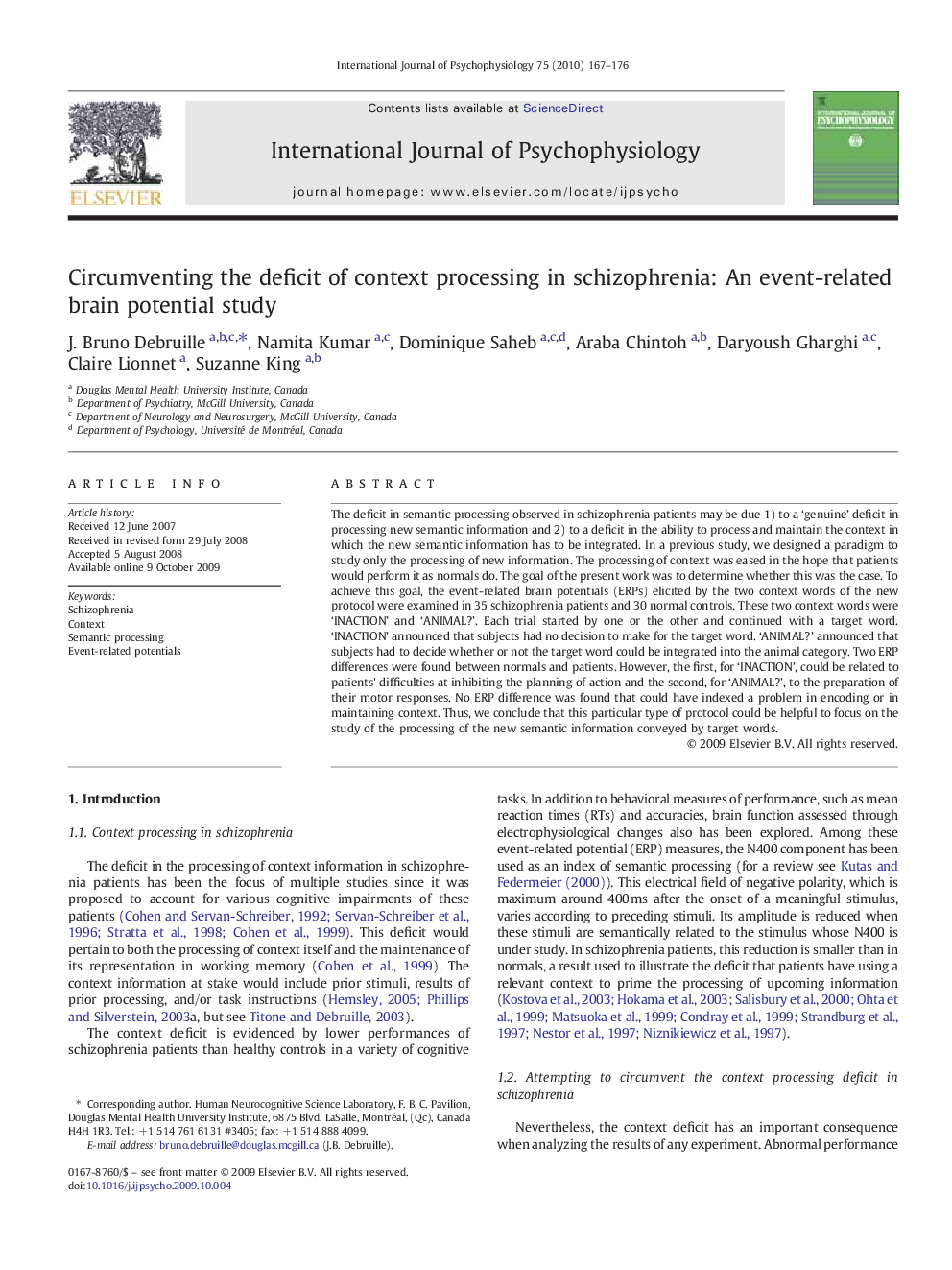| Article ID | Journal | Published Year | Pages | File Type |
|---|---|---|---|---|
| 930689 | International Journal of Psychophysiology | 2010 | 10 Pages |
The deficit in semantic processing observed in schizophrenia patients may be due 1) to a ‘genuine’ deficit in processing new semantic information and 2) to a deficit in the ability to process and maintain the context in which the new semantic information has to be integrated. In a previous study, we designed a paradigm to study only the processing of new information. The processing of context was eased in the hope that patients would perform it as normals do. The goal of the present work was to determine whether this was the case. To achieve this goal, the event-related brain potentials (ERPs) elicited by the two context words of the new protocol were examined in 35 schizophrenia patients and 30 normal controls. These two context words were ‘INACTION’ and ‘ANIMAL?’. Each trial started by one or the other and continued with a target word. ‘INACTION’ announced that subjects had no decision to make for the target word. ‘ANIMAL?’ announced that subjects had to decide whether or not the target word could be integrated into the animal category. Two ERP differences were found between normals and patients. However, the first, for ‘INACTION’, could be related to patients' difficulties at inhibiting the planning of action and the second, for ‘ANIMAL?’, to the preparation of their motor responses. No ERP difference was found that could have indexed a problem in encoding or in maintaining context. Thus, we conclude that this particular type of protocol could be helpful to focus on the study of the processing of the new semantic information conveyed by target words.
